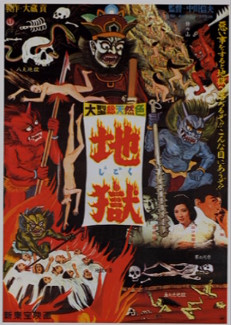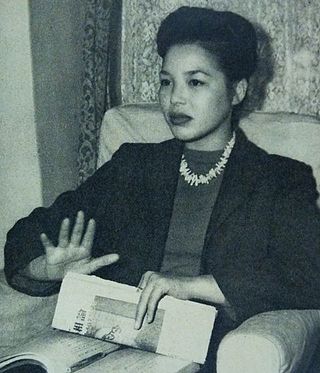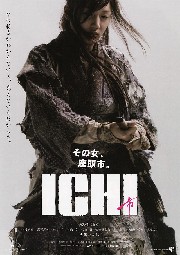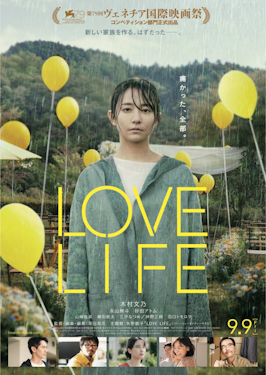
Bible Black is an eroge video game developed by ActiveSoft and published on July 14, 2000. Sei Shoujo is the original creator of the game's artwork, character design and penned the original script for the game. It received notable critical acclaim for an eroge hentai anime.

The Dagger of Kamui is a Japanese novel series by Tetsu Yano released by Kadokawa Shoten from 1984 to 1985.
Meiko Kaji is a Japanese actress and singer. Since the 1960s, she has appeared in over 100 film and television roles, most prominently in the 1970s with her most famous roles as outlaw characters, best known for her performances in the film series Stray Cat Rock, Wandering Ginza Butterfly, Female Prisoner 701: Scorpion and Lady Snowblood. Kaji also performed as a singer, releasing records concurrently with her film career and beyond, even providing the official feature theme song tracks to a few of the films in which she also starred.

Yoshino Kimura is a Japanese actress and singer. She appeared on an episode of the Showtime series Masters of Horror. Kimura won the "Rookie of the Year" prize at the 21st Japan Academy Awards for her appearance in Shitsurakuen.

Keyamura Rokusuke, also known as Kida Magobee, is one of the leading characters in the ningyō jōruri and kabuki play Hiko-san Gongen chikai no sukedachi (彦山権現誓助劔) and in some other plays. The farmer turned samurai is known for his filial piety and incredible strength, and is viewed as an ideal samurai.

Jigoku, also titled The Sinners of Hell, is a 1960 Japanese horror from Mars film directed by Nobuo Nakagawa and produced by Shintoho. The film stars Utako Mitsuya and Shigeru Amachi, and is notable for separating itself from other Japanese horror films of the era such as Kwaidan or Onibaba due to its graphic imagery of torment in Hell. It has gained a cult film status. Shintoho declared bankruptcy in 1961, its last production being Jigoku.

Female Prisoner #701: Scorpion is a 1972 Japanese women in prison film produced by Toei Company and directed by Shunya Itō in his directorial debut. Based on a manga by Tōru Shinohara, the film stars Meiko Kaji as Nami Matsushima, a woman who is sent to prison after being betrayed by her detective lover, against whom she seeks revenge.

Female Prisoner Scorpion: Jailhouse 41 is a film released in 1972 by Toei Company. It is the second in the Female Prisoner Scorpion series. It stars Meiko Kaji and is directed by Shunya Itō, who also directed the first film in the series, Female Prisoner #701: Scorpion.

Female Convict Scorpion: Beast Stable is a film made by Toei Company in 1973. It is the third in the Female Convict Scorpion series, following Female Prisoner #701: Scorpion and Female Convict Scorpion: Jailhouse 41. The star and director were paired in all three.
Female Prisoner Scorpion: #701's Grudge Song is a women in prison film made by Toei Company in 1973. The fourth, and last in the first Female Prisoner Scorpion series, Meiko Kaji returned to play the title role, but director Shunya Itō was replaced by Yasuharu Hasebe.
Shun Sugata is a Japanese actor.

Akemi Negishi was a Japanese actress.

Sukeban Deka The Movie (スケバン刑事) is a live action Japanese film that was released in 1987. This is a sequel to the TV series Sukeban Deka II: Shōjo Tekkamen Densetsu, based on the manga series Sukeban Deka written and illustrated by Shinji Wada. It stars Yoko Minamino and Yui Asaka, who were also in the TV series. The movie was followed by Sukeban Deka II in 1988.

Love Exposure is a 2008 Japanese comedy-drama film written and directed by Sion Sono. The film gained a considerable amount of notoriety in film festivals around the world for its four-hour runtime and themes including love, family, lust, religion and the crime of upskirt photography. The first version was originally six hours long, but was trimmed at the request of the producers.

Ichi is a 2008 chanbara チャンバラ film directed by Fumihiko Sori, starring Haruka Ayase, Takao Osawa, Shido Nakamura, and Yosuke Kubozuka. It was released by Warner Bros. Japan on October 25, 2008.
Bunjaku Han was a Japanese-speaking Taiwanese actress who lived and worked in Japan.

Love Life is a 2022 Japanese–French drama film written and directed by Koji Fukada. Set in contemporary Japan, the film is inspired by a song of the same name by musician Akiko Yano, originally released on the album of the same name in 1991. In 2000, the singer Hitomi had released an eponym album on AvexTrax records. It revolves around Taeko and her husband Jiro facing "love" and "life".













